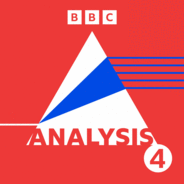It may come as no great surprise that many of us have experienced a wage squeeze, while the cost of living has gone the other way, since the financial crisis of 2008. However, as Duncan Weldon, a senior economist at the Trades Union Congress, points out, wages for most people in the UK began stagnating years before the crisis.We tend to think of the early 2000s as a time of relative wealth: house prices were rising, credit flowed easily, the government introduced a generous tax credit scheme and people generally felt better off. But Duncan Weldon argues these masked the reality of what was going on.Work done by the think tank The Resolution Foundation, which focuses on those on low and modest incomes, shows that there was almost no wage growth in the middle and below during the five years leading up to 2008 and yet the economy grew by 11% in that period. Others also point out that the share of the national income which goes into wages, as opposed to profits, has been decreasing since the mid-1970s. The argument is that less of the economic pie is going into the pockets of ordinary workers.What is also clear is that a disproportionate amount of the economic wealth has been going to those at the top. The earnings of the richest few per cent have increased rapidly in the UK since the 1980s and that pattern accelerated in the last ten years. In the United States that process began earlier and has been more extreme.Some economists argue that this is not a problem in itself as taxation, for example, helps to re-distribute the money to the less well off or those with disadvantages.In Analysis Duncan Weldon asks why wages stopped rising in the years before the crash and what was the driving force for the squeeze?

Politik
Analysis Folgen
Programme examining the ideas and forces which shape public policy in Britain and abroad, presented by distinguished writers, journalists and academics.
Folgen von Analysis
389 Folgen
-
Folge vom 20.02.2012Profits Before Pay
-
Folge vom 13.02.2012Preparing for EurogeddonEurope thinks the unthinkable - what happens if the Eurozone splits. What would happen to the banking sector, how would a new currency be put in place, can contagion be halted, and more fundamentally could the Euro survive? Policymakers across Europe are putting their contingency plans together. We reveal what some of the preparations may be. Reporter Chris Bowlby runs through some of the scenarios of what may happen if a country were to withdraw, and crucially what would happen next. Contributors: Dawn Holland, National Institute of Economic and Social Research; Aristotle Kallis, Political Scientist; David Marsh, author "The History of the Euro"; David Lascelles, senior fellow of the Centre for the Study of Financial Innovation; Mark Crickett De La Rue; and Larry Hatheway, UBSProducer: Kavita Puri.
-
Folge vom 06.02.2012Sheikh Rachid GhannouchiShould the world fear the rise of political Islam in the newly democratic Middle East? The Arab Spring has thrust the ideas and ideology of one man into the centre of this crucial question. Before the revolutions began, Sheikh Rachid Gannouchi lived in Hemel Hempstead and was one of the world's leading Islamist ideologues, urging the Muslim Brotherhood to accommodate modate the ideas of secularism, democracy and acceptance of equal political rights for non-Muslims. But after the region begun to rise up against dictators, he has become even more powerful and his ideas have been tested as never before. He returned to his native Tunisia in 2011 and is now spiritual leader of Tunisia's largest political party, but his influence extends far beyond North Africa. As the Muslim Brotherhood and its ideological brethren try and find a place in a democratic world, his controversial ideas have won acolytes in the Arab World, Turkey and South East Asia.For Analysis, the BBC Radio 4 series that probes the ideas that shape the world, Owen Bennett-Jones travels to Tunis to meet this controversial thinker and examines his ideas and influence.The documentary features a full length interview with Sheikh Rachid Gannouchi. In addition, Owen interviews Dr Maha Azzam, of Chatham House in London; Anas Altikriti, Islamist intellectual and son of the former leader of the Iraqi Muslim Brotherhood; Wan Saiful Wan Jan, a member of the Islamic Party of Malaysia; Abdel Kader Heshimi, leader of a group of Salafi Muslim students in Tunis, and a group of feminist law students in Tunis. Producer: Mukul Devichand.
-
Folge vom 30.01.2012Do Schools Make a Difference?The government's brought in new style league tables to help parents choose schools. But do we really know what makes a good school? And how far can schools really transform lives? Researchers have long believed in a so-called 'school effect' that counters, at least in part, factors such as social and family background. But how easy is it to measure this kind of effect, and can parents really be given a clear guide as to which school is best for their child? Or has too much emphasis on factors such as social background made schools complacent about what they can achieve? Fran Abrams talks to head teachers, educational experts, the schools minister and the new head of Ofsted as she investigates what difference schools can really make.
